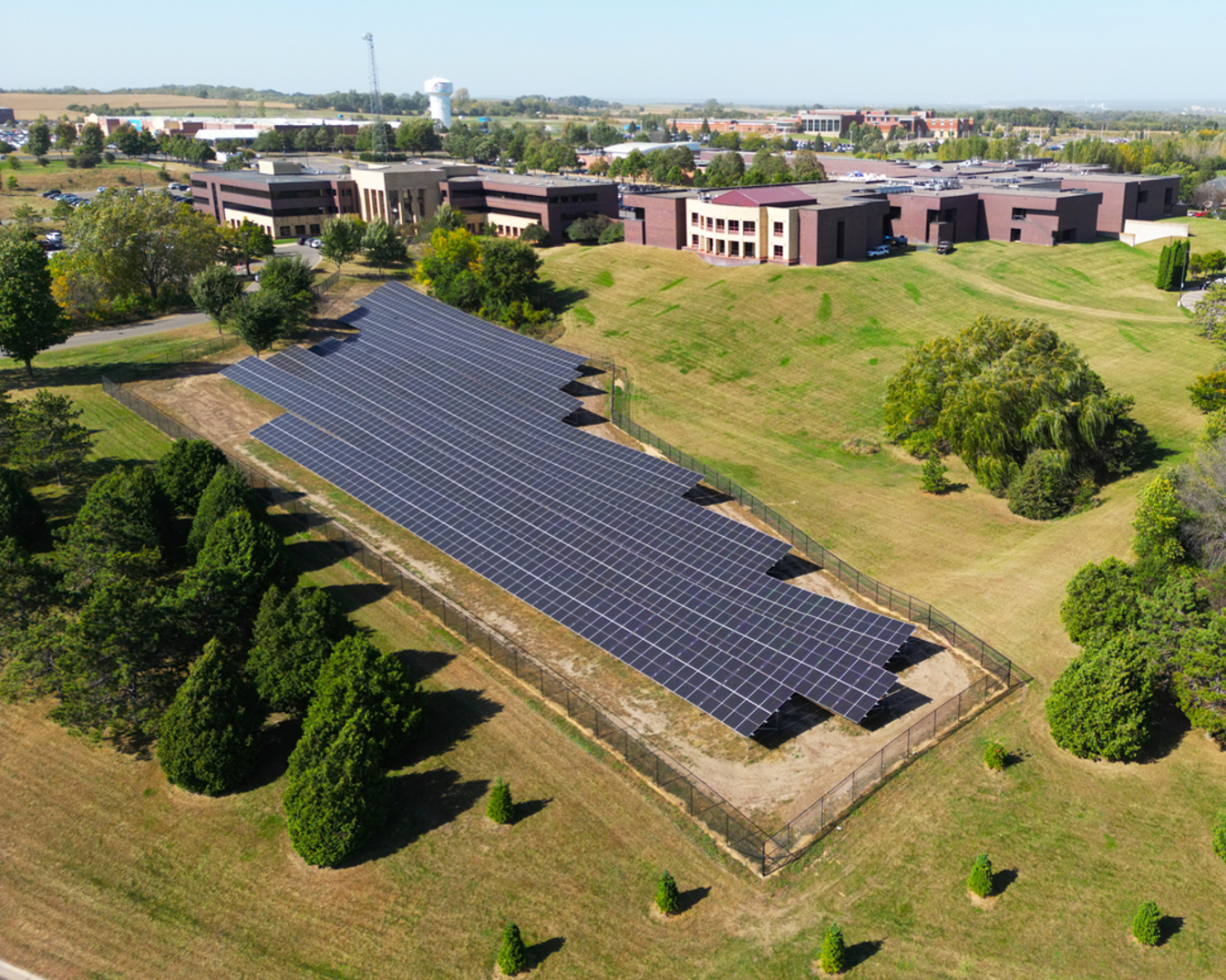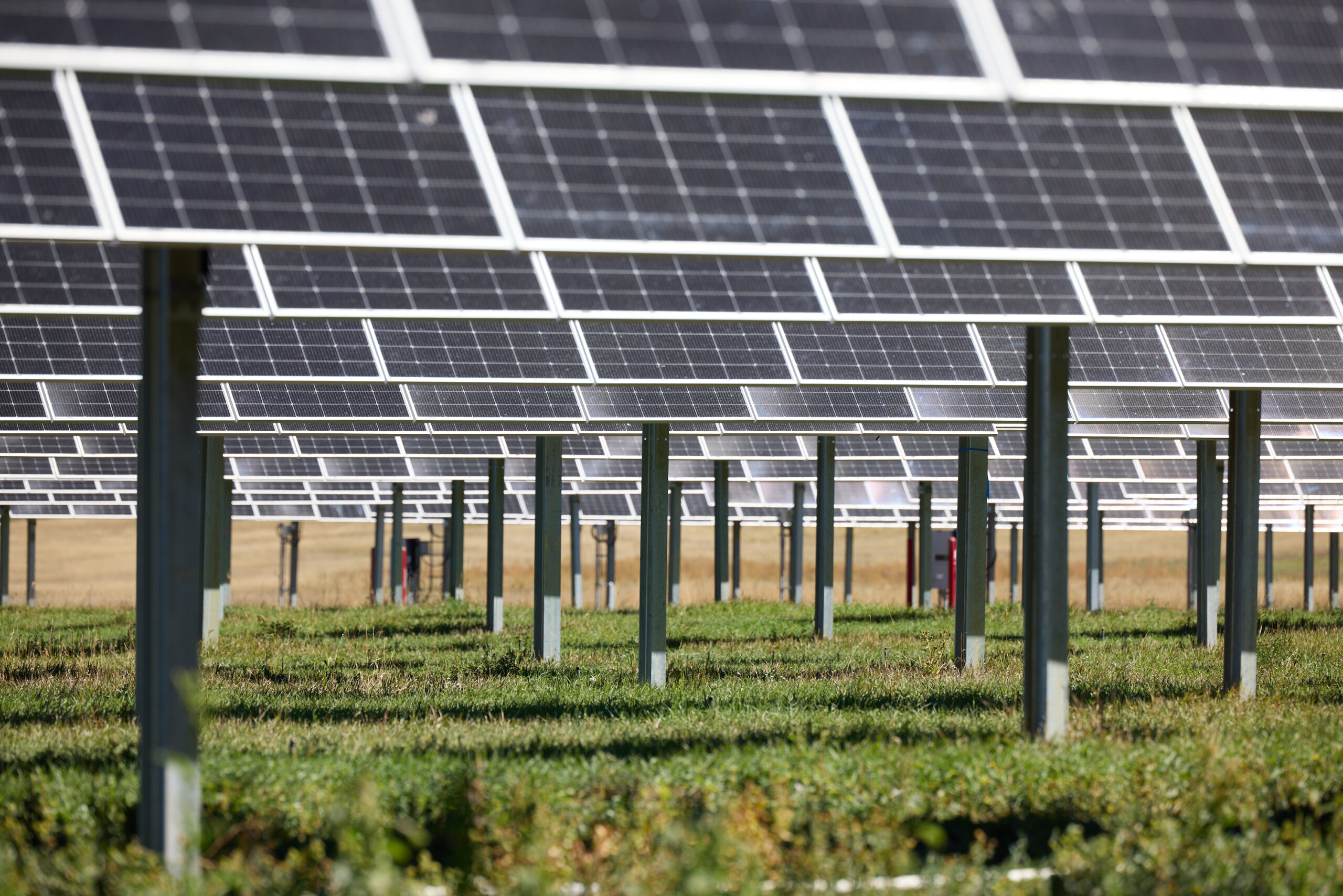Inflation Reduction Act Increases Access to Renewable Energy
Milwaukee County partners with McKinstry on county-wide solar feasibility study to achieve 2050 Climate Action Plan utilizing investment tax credits
Nestled along the shores of Lake Michigan, Milwaukee County is Wisconsin’s most populous county. Named for the eponymous city, Milwaukee, the county has a rich cultural heritage, vibrant architecture and a vast brewing industry. Aiming to become the healthiest county in Wisconsin, Milwaukee County is working toward a tangible path forward to achieve net zero carbon emissions while advancing equity, justice and resiliency.
In 2020, the county’s Office of Sustainability completed the first-ever inventories of Milwaukee County government emissions, launching a retro-commissioning (RCx) program to improve energy efficiency and occupant comfort within its buildings. Sixty-four percent of the county’s carbon emissions come from building operations. In 2022, the county secured federal funding to develop its Climate Action 2050 Framework (CA50) as well as a publicly accessible Energy Dashboard. The dashboard provides community visibility while county leadership looks to execute CA50 in the coming years for a healthier and safer community.
The CA50 serves as the county’s roadmap to align climate initiatives with racial equity initiatives as well as improve county resiliency and achieve carbon neutrality by 2050. The county also hopes to leverage sustainability efforts to create living-wage green jobs for people of color. To support its sustainability efforts, the county partnered with McKinstry in June 2024 to develop a comprehensive county-wide solar feasibility study. The feasibility study included a detailed assessment of 38 county properties including the Mitchell International Airport, law enforcement buildings, museum, community centers and recreational spaces as well as the local zoo, totaling more than 13 million sq.ft.
The county’s solar feasibility study engaged multiple McKinstry offerings from facility condition assessments and maintenance planning to utility data analysis to staff interviews and incentive and rebate strategies including application of the federally funded Inflation Reduction Act (IRA). Considering once-in-a-generation funding for renewable energy made possible by the IRA, investment in renewable energy systems has never been more fiscally advantageous for local government entities. The IRA made available tax benefits once reserved only for tax-paying entities, now extended to public entities in the form of the Direct Pay Program. A tax credit is a dollar-for-dollar reduction to tax liability.
Upon completion of the feasibility study, McKinstry was able to recommend the implementation of 22 solar systems across 17 county sites prioritizing installation of systems on sites that are already slated for capital improvements or maintenance in the coming months and years. Implementation of the solar feasibility study could result in significant community impacts, including over 200,000 tons of carbon offset by solar production as well as 28% project cost savings on average in IRA funding. Adoption of solar on this scale would make Milwaukee County a national leader in local government renewable energy, saving upwards of $55 million in energy costs over the lifetime of the proposed systems. Beyond cost savings, more than 60% of the recommended systems are sited in low-income communities, making climate justice a primary benefit of these projects.
McKinstry is proud to partner with Milwaukee County, an exemplar of purposeful community stewardship in the Great Lakes region, demonstrating what is possible when municipalities work strategically to align county vision with efforts to combat the climate crisis while also improving resident and visitor experience.

Milwaukee County, Wis.

Government

Zero+ Planning
Solar and Renewables
Engineering and Design


